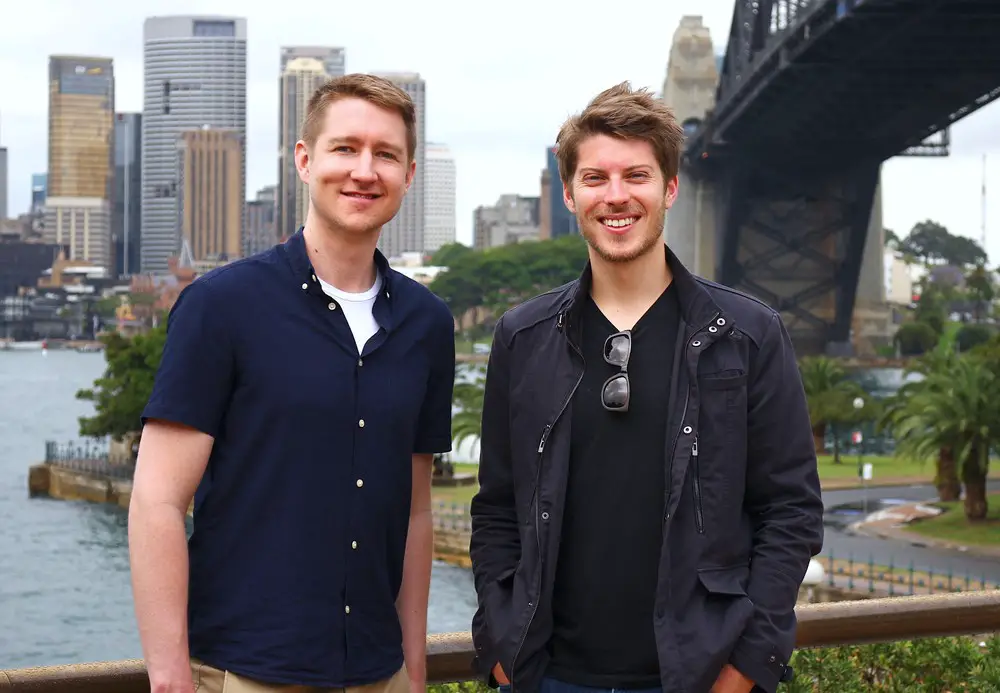Benjamin Humphrey, CEO & Co-Founder of Dovetail, Shares His Most Inspiring Business-Books
 Today’s interview features a Sydney-based founder, product designer and developer, CEO and co-founder of Dovetail. Ladies and gents, put your hands together for Benjamin Humphrey.
Today’s interview features a Sydney-based founder, product designer and developer, CEO and co-founder of Dovetail. Ladies and gents, put your hands together for Benjamin Humphrey.
Together with Brad Ayers, Benjamin bootstrapped Dovetail, a business research tool that was born back in October 2016.
They believe that deeply understanding customers is key in making great products, so they created Dovetail to make researcher’s lives easier. Dovetail allows teams to create better customer profiles, by easily sharing user research and customer feedback, to help with deeper analysis and insight sharing.
Benjamin has previously led design at Atlassian and Delicious, and was also involved in the founding of several projects and organizations over the years, such as UX Design Day, OMG! Ubuntu!, and The Ubuntu Manual.
The following book-talk is a real gem for everyone interested in entrepreneurship and product design, so keep on reading!
What’s your favorite book and why? Business and non-business, if possible.
Business: Elon Musk’s biography by Ashlee Vance. It’s not a business book that tries to offer advice. Instead, Vance tells the true story of a highly motivated individual, and immigrant, with a lot of passion for what he does. The book has lots of examples and anecdotes from current and former employees demonstrating Musk’s hands-on, no bullshit leadership style. It also spends time dwelling on his insane working habits and stress, and the impact that has on his relationships.
Business: Universal Principles of Design by William Lidwell. Essentially a reference book for product designers, the universal principles is a smartly curated and neatly presented guide to the key terms you’ll come across as a designer, with examples and diagrams. A beautiful book.
Business: Creativity, Inc by Ed Catmull. This book gives a fascinating insight into how Pixar works, and a lot of what they do to create amazing movies is highly relevant to designing and building great products. It’s been a while since I read it, but it’s full of useful and practical examples to boost creativity and problem solving in teams.
Non-business: A Fire Upon the Deep by Vernor Vinge. This is an immense science fiction space opera which came out in 1992. It covers a lot of themes including AI, aliens, love, betrayal, genocide, and racism. I found the book spectacular in its scale and detail, and original in its ‘zones of thought’ concept, where the galaxy is split into four zones, each with their own laws of physics. There’s also the unusual ‘Tines’ race, where each animal is comprised of a group mind of 3 – 5 members.
Non-business: The Grand Design by Stephen Hawking. This book covers the history of the science behind the universe. Hawking is a good writer, and he has a knack for explaining complex concepts in smart metaphors. I like the book (and his other work) because it really hammers home the cosmic scale and how little time we all have to make an impact and enjoy our life.
Was there a moment, specifically, when something you read in a book helped you? Can you tell me about it?
 I can’t think of one specific moment, but there were a lot of things in Musk’s biography that resonated with me. He’s an effective leader because he instills a sense of purpose in the entire company, constantly hammering home the mission for the company. He’s conscious of the ‘ivory tower’ effect of management, not hesitating to get to the bottom of something, even if it means literally working on the factory floor. He’s incredibly focused and disciplined, and will prioritize his own tasks ruthlessly to make sure he’s only working on the most important things at the time.
I can’t think of one specific moment, but there were a lot of things in Musk’s biography that resonated with me. He’s an effective leader because he instills a sense of purpose in the entire company, constantly hammering home the mission for the company. He’s conscious of the ‘ivory tower’ effect of management, not hesitating to get to the bottom of something, even if it means literally working on the factory floor. He’s incredibly focused and disciplined, and will prioritize his own tasks ruthlessly to make sure he’s only working on the most important things at the time.
This level of passion and focus has consequences, and the book talks about this – the toll it takes on his relationships, on his direct management staff, and so on. For me it was really interesting to hear about both sides of the story, at multiple companies, and then to think about what sort of company and management style we want for Dovetail.
What books had the biggest impact on you? (perhaps changed the way you see things, dramatically changed your career path)
When I was in university I got involved in the Ubuntu open source community. One of the projects I started was called The Ubuntu Manual. Basically we wrote a printable PDF manual for Ubuntu and translated it into several languages, with the goal of delivering it to Ubuntu user groups and schools in third world countries. This was my first introduction to a technical community, and also into the world of open source, programming, leading a small team, organizing work, etc. So actually working with a team on writing this book had a huge impact on my career path.
The other book that had a big impact on my career path would be Operating System Concepts with Java by Silberschatz, A. et al. This book basically killed programming for me! I dropped out of computer science and switched to design because I hated writing Java as a 19 year old. Nowadays, I write a lot of code (not Java though), but my career would have been completely different if I hadn’t dropped out of Comp Sci.
What books would you recommend to youngsters interested in your professional path? Why? (no number limit here)
- The Little Black Book of Design by Adam Judge. A short, simple book with pertinent and funny quotes about design and engineering.
- Universal Principles of Design by William Lidwell. Great reference material.
- A subscription to The New Yorker. Helps form a world view and open your eyes to all sorts of interesting topics. It’s important for a designer to be well-rounded and empathetic.
How do you make time for reading?
I try to hit the hay a bit early and dedicate 30 minutes to an hour a day for reading. Most of the time this is reading the New Yorker or the Atlantic, both of which I have a print subscription to. During the day I read a lot of articles on the web about design, engineering, and startups.
Do you take notes or have any other technique for conquering the torrent of information?
Not really. Sometimes I’ll highlight sections in a book or mark things with a post-it note.
How do you choose what books to read next?
Well, the New Yorker and the Atlantic are great because they arrive on a regular cadence, and they’re full of interesting and varied articles which are always of a high quality. In terms of books, either recommendations from my girlfriend or ex-colleagues.
Do you prioritize the books recommended by certain people? Is there anyone that you consider a book-recommendations guru?
My girlfriend reads a lot although usually a lot more fiction than I do. She knows me pretty well! So sometimes she’ll recommend something to me.
Last question: what book are you currently reading and what are you expecting to gain from it?
I just ordered The Disaster Artist by Greg Sestero, in print. I loved the movie when it came out last year and I’ve been a fan of The Room for several years. I thought I should finally get around to reading the source material for The Disaster Artist, which is Sestero’s book.
Other than that, I’m trying to catch up on a New Yorker backlog!
Links where you can follow Benjamin Humphrey or find out more about his projects:
All books mentioned by Benjamin Humphrey in this interview:
- Elon Musk: Tesla, SpaceX, and the Quest for a Fantastic Future by Ashlee Vance
- Universal Principles of Design: 125 Ways to Enhance Usability, Influence Perception, Increase Appeal, Make Better Design Decisions, and Teach through Design by William Lidwell, Kritina Holden, Jill Butler
- Creativity, Inc.: Overcoming the Unseen Forces That Stand in the Way of True Inspiration by Ed Catmull
- A Fire Upon The Deep (Zones of Thought) by Vernor Vinge
- The Grand Design by Stephen Hawking, Leonard Mlodinow
- The Little Black Book of Design by Adam Judge
- The Disaster Artist: My Life Inside The Room, the Greatest Bad Movie Ever Made by Greg Sestero, Tom Bissell